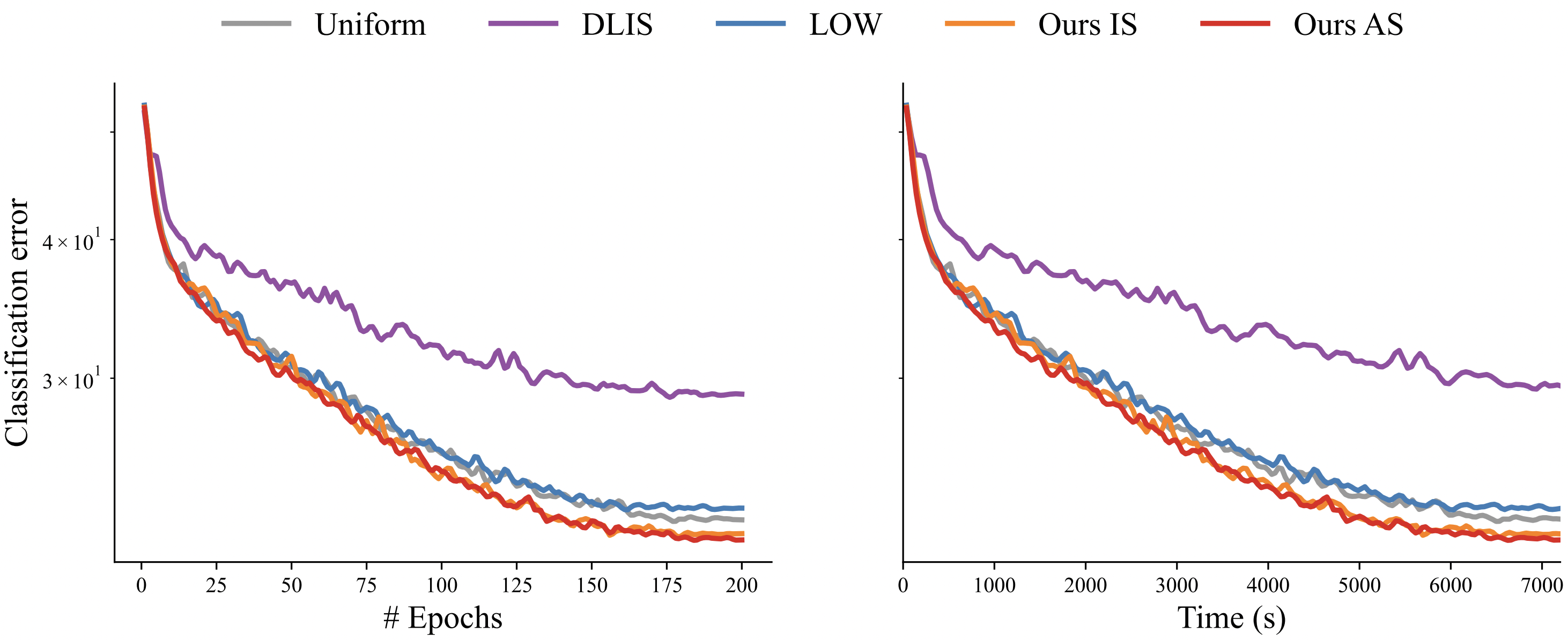

Machine learning problems rely heavily on stochastic gradient descent (SGD) for optimization. The effectiveness of SGD is contingent upon accurately estimating gradients from a mini-batch of data samples. Instead of the commonly used uniform sampling, adaptive or importance sampling reduces noise in gradient estimation by forming mini-batches that prioritize crucial data points. Previous research has suggested that data points should be selected with probabilities proportional to their gradient norm. Nevertheless, existing algorithms have struggled to efficiently integrate importance sampling into machine learning frameworks. In this work, we make two contributions. First, we present an algorithm that can incorporate existing importance functions into our framework. Second, we propose a simplified importance function that relies solely on the loss gradient of the output layer. By leveraging our proposed gradient estimation techniques, we observe improved convergence in classification and regression tasks with minimal computational overhead. We validate the effectiveness of our adaptive and importance-sampling approach on image and point-cloud datasets.
Paper (arXiv version) / Openreview (openreview)


Imprint
/ Data Protection